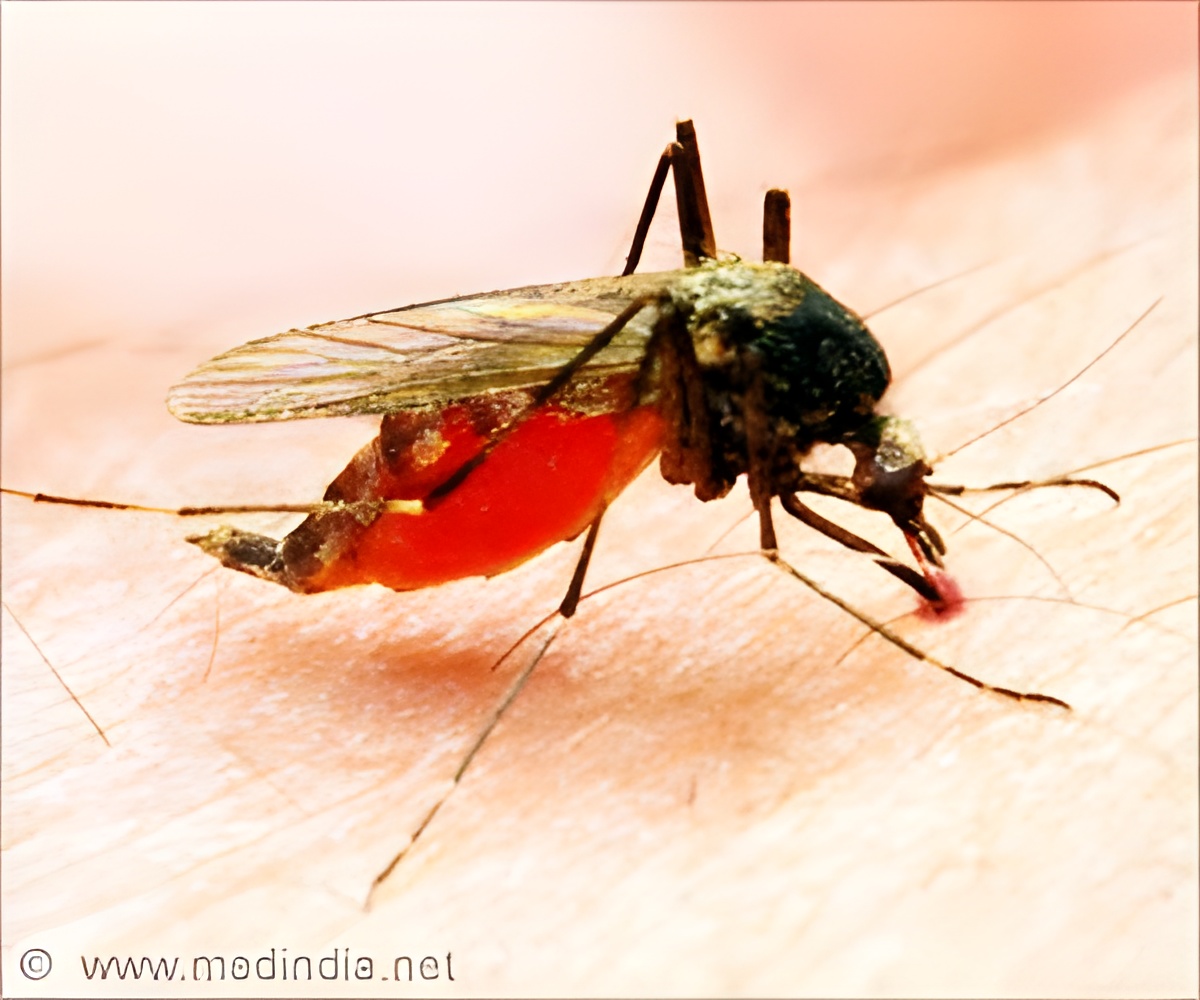
The female needs the sperm to stay healthy whilst they are in storage in the spermatheca, so that they are viable each time she uses them to reproduce. The new research, published in the journal Proceedings of the National Academy of Sciences, reveals that the sperm are partly protected by the actions of an enzyme called HPX15. When the researchers interfered with HPX15 in female A. gambiae mosquitoes in the laboratory, the females fertilised fewer eggs and therefore produced fewer offspring.
This is the first time that scientists have discovered a mechanism that preserves the function of sperm in A. gambiae. The researchers, from Harvard School of Public Health, the University of Perugia and Imperial College London, believe that their insight could ultimately lead to a new weapon in the fight against malaria. This would work by disabling HPX15 to reduce female fertility and through that, reduce the number of malaria-carrying mosquitoes in circulation.
Dr Robert Shaw, one of the lead authors of the research from the Department of Life Sciences at Imperial College London, said: "Malaria kills over 650,000 people every year and we need to find new ways of tackling it, partly because mosquitoes continue to evolve ways of resisting our efforts. We are interested in cutting the numbers of malarial mosquitoes by impairing their ability to reproduce, and our new study suggests a way that we might be able to do this. There is no single magic bullet for tackling malaria, but making mosquitoes less fertile could provide us with a valuable weapon against the disease."The new study suggests that HPX15 may protect the stored sperm against potentially damaging molecules called free radicals, which are particularly abundant after a female takes a blood feed. Ensuring that the sperm are healthy after blood-feeding is important for the female's fertility as she reproduces after each feed, fertilising her eggs with sperm released from the spermatheca.
In addition to uncovering the role of HPX15, the researchers also discovered how it is activated, suggesting another possible target for immobilising the enzyme. The male mosquito transfers a hormone called 20E to the female during mating and it is this hormone that induces the expression of HPX15 in the female.
Study author Flaminia Catteruccia, Associate Professor at Harvard School of Public Health and the University of Perugia, who is also an Honorary Research Fellow at Imperial College London, said: "We've managed to disable HPX15 in mosquitoes in the lab, but we don't yet have a way of replicating this in wild mosquitoes. The next step for this research is to think about how we could prevent activation of either the enzyme that protects the sperm, HPX15, or of the male trigger 20E that kicks that enzyme into action. There may also be other pathways that we could target, and this is something that we're keen to investigate."In the laboratory, the researchers injected the female mosquitoes with an inhibitor to reduce the levels of HPX15. Normally around 3 percent of the eggs that a female lays do not develop into offspring. When the researchers reduced the levels of HPX15 in female laboratory mosquitoes, 20% of the mosquitoes' eggs were infertile.
Professor Catteruccia said: "In the lab we reduced the number of offspring by a fifth and that's not a huge reduction, but mosquitoes in the laboratory are subjected to much less stress than those in the wild, so we suspect that this kind of intervention would have a bigger impact on the fertility of wild mosquitoes. That's something we would ultimately hope to investigate."
Dr Shaw added: "So far, we haven't been able to completely eliminate HPX15. It's possible that even a small quantity might provide enough protection to prevent a mosquito from becoming infertile, and that if we could in future eliminate HPX15 altogether we might see a more dramatic effect."
Co-author Eleonora Teodori from the University of Perugia concluded: "We're continuing to study the mechanisms involved and we're looking forward to further exploring the potential of targeting HPX15 in mosquitoes as a way of fighting malaria."
Source-Eurekalert












